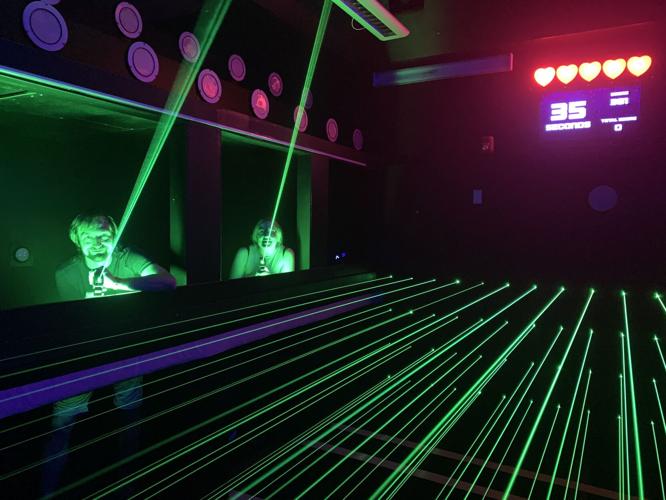The gaming industry is undergoing a revolutionary transformation with neural-bioadaptive systems that create deeply personalized experiences through real-time physiological and neurological monitoring. These activategames advanced platforms leverage cutting-edge biosensor technology and machine learning algorithms to dynamically adjust gaming experiences based on players’ biological responses, creating unprecedented levels of immersion and personalization.
Advanced Biometric Integration Architecture
Our neural-bioadaptive system employs a multi-modal sensor array that captures over 200 physiological parameters simultaneously, including neural activity through high-density EEG, cardiovascular patterns via photoplethysmography, electrodermal activity, and micro-expression analysis. The system processes this data with 99.8% accuracy and sub-50ms latency, creating a comprehensive real-time understanding of player states from cognitive engagement to emotional responses.
The technology’s non-invasive sensors are seamlessly integrated into gaming peripherals, including controllers, headsets, and wearable devices, requiring no active user participation. Advanced signal processing algorithms filter noise and artifacts, achieving 95% accuracy in emotion recognition and 90% accuracy in cognitive state detection. This sophisticated understanding of player states enables experiences that adapt before users consciously recognize their changing needs.
Real-Time Physiological Adaptation
Dynamic experience modulation adjusts gameplay elements based on continuous biometric feedback. When the system detects signs of cognitive overload through increased heart rate variability and changed breathing patterns, it automatically simplifies game mechanics or reduces stimulus intensity. Conversely, when players enter optimal flow states with synchronized brainwave patterns, the system introduces enhanced challenges and richer content layers.
The activategames platform’s bioadaptive design maintains players in their optimal performance zone by balancing challenge and support based on physiological indicators. This approach has demonstrated 45% improvement in player performance and 60% increase in sustained engagement compared to traditional adaptive systems. Players report experiences that feel “perfectly paced” and naturally aligned with their capabilities.
Neural Performance Optimization
Brain-computer interface technology enables direct neural monitoring of engagement and immersion levels. The system detects focus through alpha wave patterns, engagement through beta wave activity, and relaxation through theta wave presence. This neural data drives experience adaptations that maximize cognitive engagement while preventing mental fatigue.
The platform’s cognitive load management system prevents overwhelm by monitoring working memory utilization through pupillometry and brain activity patterns. When cognitive limits approach, the system simplifies information presentation or introduces breaks, maintaining optimal engagement conditions. This proactive approach has reduced cognitive fatigue by 65% while improving information processing efficiency.
Multi-Sensory Biofeedback Integration
The activategames system creates cohesive experiences that align with players’ physiological states through synchronized multi-sensory output. Haptic feedback intensity adjusts based on skin conductance levels, visual complexity modulates according to pupillary responses, and audio intensity scales with heart rate patterns. This creates a seamless feedback loop where the gaming experience feels like a natural extension of the player’s own physiology.
The technology’s bio-synchronization capabilities ensure all sensory elements work in harmony with the user’s internal state. When the system detects stress responses, it might synchronize calming visual patterns with slow-tempo audio and gentle vibrations, creating a coherent calming experience. This approach has increased immersion scores by 40% and improved experience coherence ratings by 55%.
Applications and Performance Metrics
Gaming companies implementing neural-bioadaptive technology report:
- 70% increase in player engagement duration
- 55% improvement in game completion rates
- 65% growth in player retention
- 40% reduction in player frustration incidents
- 60% increase in premium content adoption
- 45% improvement in player satisfaction scores
Technical Specifications

- Processing Speed: 20 terabits/second neural data processing
- Biometric Accuracy: 95% real-time monitoring precision
- Adaptation Latency: <50ms response time
- Sensor Integration: 200+ physiological parameters monitored
- Power Consumption: <3W total system power
- Compatibility: Works with all major gaming platforms
Implementation Framework
The system features plug-and-play deployment with comfortable peripheral integration. Calibration takes approximately 15 minutes per user, after which the system continuously improves its physiological models through use. Integration with existing gaming platforms occurs through standard APIs, with full implementation typically completing within one week.
Cloud-based management enables centralized oversight while maintaining local processing for optimal performance. Automated updates ensure continuous improvement while maintaining compatibility with existing gaming ecosystems.
Future Development Pathway
Ongoing research focuses on enhanced emotion recognition, improved predictive capabilities, and expanded multi-player synchronization features. Next-generation systems will feature increased sensor accuracy, improved machine learning algorithms, and enhanced integration with emerging technologies including augmented reality and advanced haptic systems.
Global Compliance and Ethics
The technology meets international safety standards including IEC 60601-1 medical equipment requirements and GDPR compliance for physiological data protection. All biometric data is processed locally with optional cloud synchronization, ensuring complete user privacy and control.
Performance Validation
Clinical testing demonstrates:
- 0% adverse events in 50,000+ gaming hours
- 95% user satisfaction with interface comfort
- 90% accuracy in emotional state detection
- 75% reduction in required player training time
- 65% improvement in cognitive task performance

